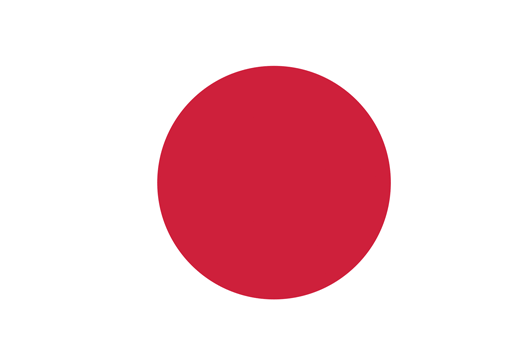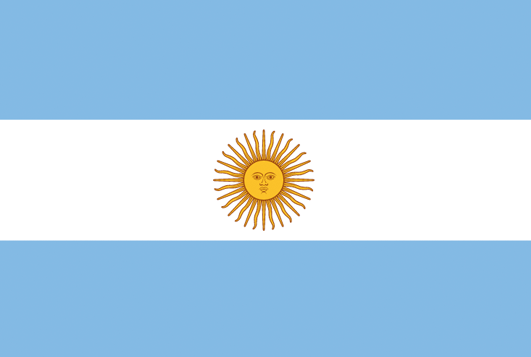G20
Resource Efficiency Dialogue


Resource Efficiency Dialogue Workshop

Date: 18th September 2023, 16:00-19:00 India time
Oragnization: MoEFCC, India
Resource Efficiency and Circular Economy within Sustainable Consumption and Production

Date: 29th July 2022, 13:30-16:00 Indonesia time
Organised by KADIN
Joint Workshop on Circular Design of Products


Date: 13th July 2022, 12:00-16:00 CEST / UTC+2
Hosted by the EU and KADIN
Joint Workshop on ‘Moving to Circular Fashion’



Date: 12th July 2022, 12:00-16:00 CEST / UTC+2
Hosted by the EU, Italy and KADIN
G20 Resource Efficiency Dialogue 2021

Date: 15 November 2021
Organised by: The Ministry of Ecological Transition, Government of Italy
The G20 members agreed to promote information sharing on national resource efficiency and circular economy targets, as well as on the indicators employed to monitor their achievement, in collaboration with international organisations such as UNEP IRP, OECD and UNIDO.
Second G20 Resource Efficiency Dialogue 2021

Date: 19-20 October 2021
Organised by: The Ministry of Ecological Transition, Government of Italy
Consistently with the Naples’ Communiqué, the G20 Countries call for action on sustainable and circular resource use and entrust the G20 Resource Efficiency Dialogue (RED) to step up action by sharing information on relevant national indicators, targets and best practices in all these areas to strengthen policy development, and by further developing its portal. Therefore, the G20 continued its work on the update of the Roadmap adopted in Tokyo in 2019. Consistently with Naples’ Communiqué, the G20 Resource Efficiency Dialogue (RED) Members met virtually on 19-20 October 2021 to step up actions on sustainable and circular resource use through a renewed three-year roadmap.
The first day of the Event was the occasion for several international organisations such as UNEP IRP, OECD, UNIDO and UNDP to present their views on future priorities on Resource Efficiency and for Japan to present the Third Report on Actions Against Marine Plastic Litter.
The second day of the Event was aimed at stimulating a discussion among G20 RED Members on the first draft of the revised Roadmap circulated by the Italian Presidency including on the themes and priority sectors of the Naples G20 Environmental Ministers Meeting, such as fashion, circular and sustainable cities, inclusion of youth, reference to partnerships and a three-year duration of the Roadmap (2021-2023) in order to give a timeframe to the actions that the various Members propose to undertake on a voluntary basis. Several G20 Members made new proposals and partnerships to actively contribute to the Roadmap objectives.
G20 Technical Experts Food Waste Meeting
Date: 13 October 2021
UNEP convenes Regional Food Waste Working Groups in four regions (Africa, Asia Pacific, Latin America & the Caribbean, and West Asia), providing capacity building and facilitating peer-to-peer learning on food waste measurement and reduction to 25 countries. A similar format could be adopted for a G20 food waste working group, responding to specific needs, sharing global best practice, and accelerating action among first movers and across the G20.
A member state has expressed interest in taking a leading role in this working group, securing its position on the G20 RE Dialogue agenda and providing continuity across G20 presidencies, to be confirmed.
A summary of the meeting and relevant slides can be found below:
First G20 Resource Efficiency Dialogue 2021

Date: 8 June 2021
Organised by: The Ministry of Ecological Transition, Government of Italy
The first session focused on preventing food waste through more conscious consumption. Representatives from China, Australia, Italy, Brazil, Canada and the United Kingdom illustrated best practices to prevent food waste; Saudi Arabia provided updates on national initiatives.
G20 Delegates also discussed the proposals set forth by Chair Laura D'Aprile as to possible actions the G20 could undertake on “Circular Fashion” and “Food Waste Prevention”. Delegates discussed current policies and several proposed solutions, voluntary agreements and future regulatory frameworks on the subject. Prevention and reduction of food waste requires coordination between various levels of national and international governments, and the private sector.
G20 Online Workshop on “Circular Fashion”


Date: 7 June 2021
Organised by: The Ministry of Ecological Transition, Government of Italy, and the European Union
- Executive summary of the workshop
- Final report of the workshop
- Highlights
- Further information including the workshop report can be found here.
G20 Online Workshop on “Measures to address marine plastic leakage through a circular economy approach”

Date: 8 September 2020
- Final Report of the Workshop
- Further information including the workshop report can be found here.
G20 Resource Efficiency Dialogue 2019 and Follow-up of G20 Implementation
Framework for Actions on Marine Plastic Litter

Date: 9-10 October 2019
Co-Organised by: the Ministry of the Environment, Japan, the Ministry of Economy, Trade and Industry, Japan and United Nations University Institute of Advanced Study of Sustainability

- Roadmap for the G20 Resource Efficiency Dialogue
- G20 Report on Actions against Marine Plastic Litter: First Information Sharing based on the G20 Implementation Framework
- G20 Resource Efficiency Dialogue 2019 and Follow-up of G20 Implementation Framework for Actions on Marine Plastic Litter symposium (9-10 October 2019, Tokyo, JAPAN)/(soon to be published)
G20 Workshop on “Scientific Knowledge and Innovative Solutions
for Marine Plastic Litter: Supporting the G20 Implementation Framework
for Actions on Marine Plastic Litter”

Date: 8 October 2019
Co-Organised by: the Ministry of the Environment, Japan and the Directorate-General for Environment of the European Commission, and the United States Environmental Protection Agency

Japan/EU Joint Networking on Marine Plastic Litter

Date: 8 October 2019
Co-Organised by: Ministry of Economy, Trade and Industry, Japan, and European Commission
Japan/EU Joint Workshop on Circular Economy and Finance

Date: 10 October 2019
Co-Organised by: the Ministry of the Environment, Japan and the Directorate-General for Environment of the European Commission

G20 Resource Efficiency Dialogue Workshop

Date: 27 August 2018
- Panel I: Resource efficiency: key for the implementation of the SDGs and NDCs
- Panel II: The economics of resource efficiency: The case for increased resource efficiency and achieving economic opportunity in the private sector
- Presentation of country cases
- Panel III: Initiatives and programs for increased resource efficiency: best practices for considering resource efficiency and life cycle perspectives when developing related projects
- Presentation of country cases
- Closing remarks by Argentine Presidency
First meeting of the G20 Resource Efficiency Dialogue

Date: 27–28 November, 2017
Organised by: Federal Ministry for the Environment, Nature Conservation and Nuclear Safety
 (c) Reinaldo Coddou
(c) Reinaldo Coddou 
